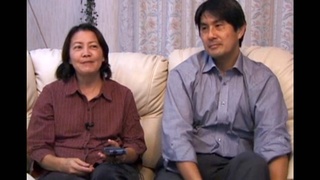Interviews
Being a Japanese American in Japan
Being a Japanese American in Japan, and coming here as a Japanese American, I think it made it more difficult when I first got here. I think it’s kind of gone in phases. It was difficult at first because there’s a lot of expectation. People meet you and they expect you to speak Japanese. “You look Japanese, why don’t you speak Japanese?” And I guess part of that’s my fault because I didn’t learn Japanese until I got here. But, there’s just expectation in terms of behavior as well. I learned this inside the school when I was working at the university. Japanese business structure, or the hierarchies that they have established are very clear, and behaviors associated with those structures are very clear. And I have never been one to conform, but it just kind of gave me a new point of view on things. Being a foreigner in this country, I kind of had to make my way in and learn that. But, yeah, I think it made it difficult.
Then as I began to learn more Japanese, it made it easier in some ways. Again, I’ll go back to the American thing. It makes it easier to for me to disassociate myself from very rude, brash, obviously American people that are behaving badly because of culture shock or for whatever reason. Called being a “stealth gaijin.” You can move in and out of the crowd sometimes. But, in terms of my relationships with other Japanese people, it made it easier just because—on the second phase—it made it easier just because there’s not that tension. They’re not meeting this obviously gaijin or foreign person. They’re meeting someone they can look at and deal with an not have that extra level of tension there.
And I guess in the third phase, it’s gotten difficult again because my American sensibilities, in terms of being an individual and doing things my way, have started to get in the way again. So I know how the Japanese system works, and I know how the Japanese people think and work—not everything, but for the most part. But, at same time, now I’m at a point now—I acquiesced in the beginning. I learned about it, and then I found the things that I don’t like about the society or interaction and relationships and how people are. And now, I’ve made conscious decisions in those terms. So now, things have gotten, again, a little bit difficult.
Date: September 12, 2003
Location: Tokyo, Japan
Interviewer: Art Nomura
Contributed by: Art Nomura, Finding Home.








